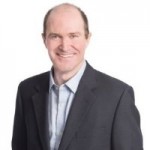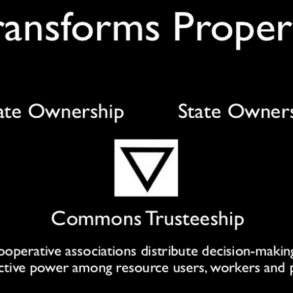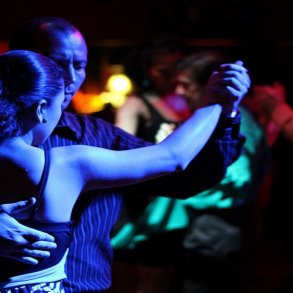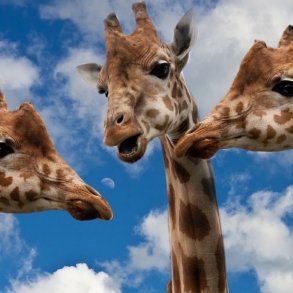By Matt Dockerty for Enlivening Edge
 The Oxford dictionary carries a definition of art as ‘the expression of human creative skill and imagination’. To the artist, imagination is often that faculty which makes sense of the world from both conscious and previously unconscious contexts.
The Oxford dictionary carries a definition of art as ‘the expression of human creative skill and imagination’. To the artist, imagination is often that faculty which makes sense of the world from both conscious and previously unconscious contexts.
Like Laloux[1] many thought leaders are proclaiming that next evolutionary stage of human consciousness is emerging. Given this, perhaps a new definition of the word artist is called for; one that recognises the evolutionary need for artistry, and its wider expression across areas other than those traditionally considered as art. For me, the definition of an artist is ‘one who creates meaning for, and expression of, the emerging context’. Such artists are desperately needed in too often dry workplaces to re-ignite passion, purpose and humanity.
The poet/philosopher David Whyte[2] explores this very theme; arguing that self and work are engaged in a conversation, and one must shape the nature of one’s work or be shaped away to nothing! This resounds with Laloux’s thought on purpose: change can come from any person in the team, who senses a need, and has passion to fulfill a shared purpose. Rilke, beautifully asks us to take ownership in the determination of what is meaningful for us:
“Why must a man be always taking on Things not his own, as if he were a servant whose marketing-bag grows heavier and heavier from stall to stall and, loaded down, he follows and doesn’t dare ask: Master, why this banquet?”
Evolution is asking us, it seems, to cultivate a responsive presence. Mature adults will shape meaning from their sense of purpose – pointing to self-awareness, sensing and dialogical practices as key to developing such discernment. Additionally, it would make sense that purpose, and the artistry required to create meaning, itself evolves – as noted in my recent blog.
Sounds too abstract, or fluffy, to be workable in reality? One only has to look at practices already being followed at a country level in Denmark. Its system of ‘Flexicurity’ encourages and supports people in their search for meaning. Under this system people and organisations are provided generous support for training, enabling them to follow their passion. This pragmatically address one of the main challenges in other western economies: where there is little space for people to reinvent meaning when work no longer enlivens them, or in cases where there is little alignment of purpose between organisation and individual. Such practices, it seems, are having a positive effect on employee motivation and on the country’s health (including economic health) – according to the Economist.
Another key work of artists, according to Bill Plotkin[3], is to integrate the whole self. Plotkin, like Laloux, argues that this integration is essential for full expression of creativity, vibrancy, compassion, and wisdom – in short, wholeness is essential for artistry. Plotkin emphasizes a number of soul practices including ‘shadow work’ as part of this integration process.
The organisation must meet its employees in a real conversation, not one that aims to leverage their artistry and capabilities only for its own goals – but one in which meaning and purpose are co-created, artists are valued, and space afforded for them to create and shape their own contribution.
How are model organisations promoting these conversations, and enabling individuals to bring themselves to their work fully?
Bright Horizons is a great example of a company that puts its employee well-being and a long-term sustainable relationship with them at the forefront of its values and policies. Examples are its application of benefits towards a more-balanced life for its employees and in the development of an internal tool which helps leaders understand what specifically is challenging their staff. Rather than standardise benefits packages, they are tailored to support the whole of individual (both inside and outside of work).
Ultimately though, responsibility lies with us. We must choose to be artists. For Victor Frankl[5] who, for me, is the model of artistry in the most horrific circumstances and context, man is ultimately self-determining. Man has a choice for what existence will be and thus he has a choice to create meaning – to be an artist!
[1] Frederic Laloux. ‘Reinventing Organisations’
[2] David Whyte. ‘Crossing the Unknown Sea’. Riverhead books. 2001
[3] Bill Plotkin. ‘Nature and the Human Soul’. New World library. 2008
[4] Viktor E. Frankl. ‘Man’s Search for Meaning’. Beacon Press. 2006
 Matt lives to inspire and help people to imagine and co-create a world which facilitates the realization of humanity’s greatest potential. He is passionate about the intersection of technology and cultural and service transformation.
Matt lives to inspire and help people to imagine and co-create a world which facilitates the realization of humanity’s greatest potential. He is passionate about the intersection of technology and cultural and service transformation.![]()





Very much resonate with the idea you present Matt. Specifically the phrase “Wholeness is essential for artistry.” Whole self integration is the purpose of our company. However it all begins with our team and who they are. The work we are privileged to do comes to us as a direct consequence of what each one of the 4DHB team has become. Each of us is focussed on the artistry of consciously creating meaning, purpose and the impact we choose professionally and personally. The thrust of which is the unique expression of (as you write) creativity, compassion, wisdom and whole self integration. Really enjoyed reading your piece.
I really enjoyed reading this. Your definition of an artist really resonated for me ‘one who makes meaning for, and expression of, the emergent context’ as it struck me that this is what I aim to do through my use of visual language in my work. Thankyou for this. Katherine
Thanks for your comment, Katherine. I’m curious as to your application of visual language. I’m drawn to review the language we use in business today, and how we might evolve this to amplify future and evolutionary intentions. The challenge, of course, being not to alienate existing forms, but to try and ‘meet them where they are’ in dialogue. The idea of visual language as a container for this is intriguing to me. I’d love to know more about your application. Warmly, Matt.
Thanks for the feedback, Tom. I find the collective enquiry into wholeness, you point to in starting with the team, very refreshing. I believe collective exploration and synthesis across all three of Laloux’s facets will be an essential capability for the future.
Matt Dockerty wrote: “collective exploration and synthesis across all three of Laloux’s facets will be an essential capability for the future.”
Matt, I think it is so already for all organizations wanting to “go Teal”. I’d love to move the edge of that exploration with all and any of our readers/contributors interested in that.
Dear George,
As always I welcome the future you seem to be inviting me to.
I also recognise the artist in you, with your gift for staging questions that ask humanity to evolve. I’ve love to hear your articulation of the question that calls you to this exploration.
Warmly
Matt